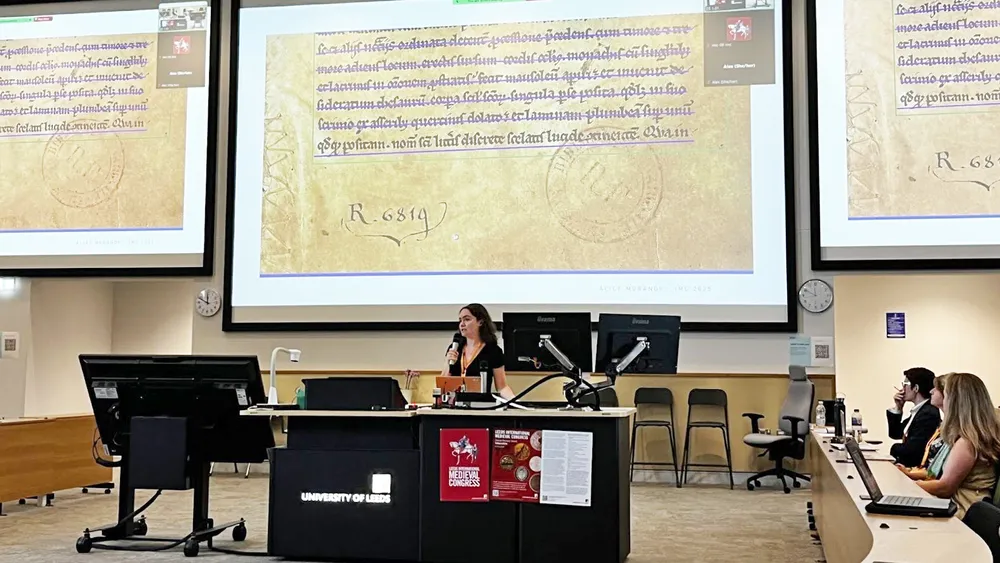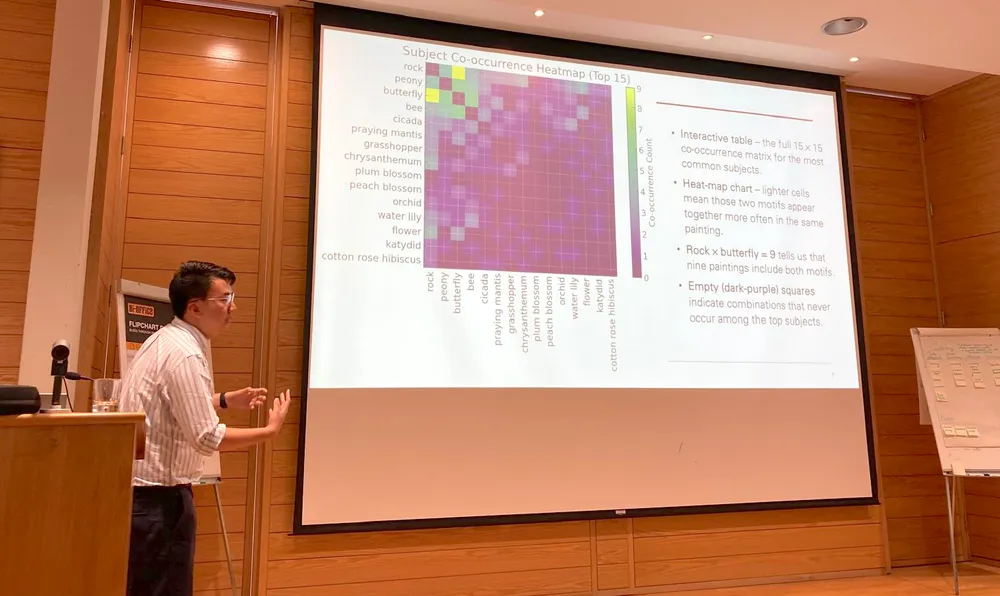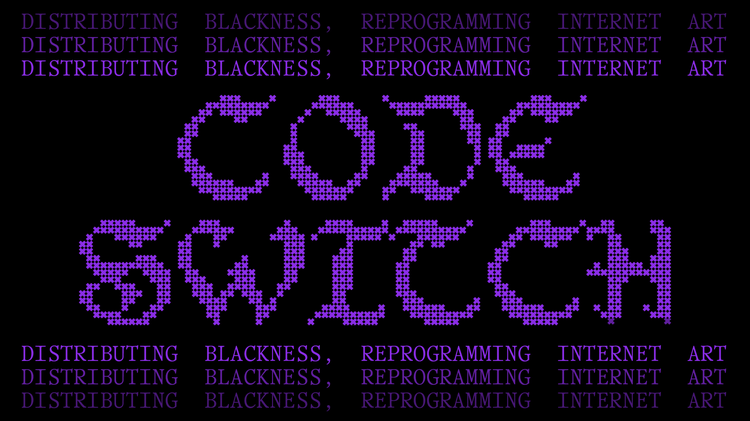Graduate training grant recipients explore DH around the world
8 October 2025

Alice Morandy at the International Medieval Congress in Leeds.
For many graduate students, the summer months offer an important opportunity to build skills and advance research projects.
With support from a Graduate Training Grant from the Center for Digital Humanities, four Princeton graduate students made the most of their summer by traveling to programs and conferences where they explored DH-related topics.
For instance, Jolaun Hunter (English and African American Studies) used her funding to attend the annual Digital IDEAS Summer Institute at the University of Michigan in Ann Arbor in June.
According to its website, the weeklong program “focus[es] on a new pressing issue at the intersection of technology and social justice.” This year’s institute engaged with the “intersection of brokenness and survivalism.”
“In addition to listening to panel presentations, I also participated in a peer research group that consisted of other scholars whose research centers around race and technoculture,” Jolaun explained. “This small group was an excellent sounding board for sharing research ideas and scholarly resources with like-minded individuals.”
Later in the summer, Pierre Azou (French and Italian) and Shing-Kwan Chan (Art and Archaeology) traveled to the United Kingdom for the Digital Humanities at Oxford Summer School.
Shing-Kwan, who participated in the “Humanities Data” strand, not only learned about topics like the International Image Interoperability Framework (IIIF), but also shared his own work, which he called an “invaluable experience.”

Shing-Kwan Chan presenting in the UK for the Digital Humanities at Oxford Summer School.
Also in the UK, Alice Morandy (History) used her grant toward her participation in the International Medieval Congress in Leeds, where she co-organized a session on “Digital Methods: Expanding Methods in Miracle Collection Research.”
“Attending the Congress provided me with the forum to share ideas about how new technologies can help miracle scholars, and the vibrant conversation during the Q&A was generative for my dissertation research,” Alice explained, adding that she also enjoyed attending the Congress’s annual disco night.
Jolaun and Shing-Kwan also noted that activities beyond the formal programming proved especially memorable.
Jolaun joined other participants for an impromptu field trip to the Museum of Contemporary Art Detroit (MOCAD) to view an exhibition called Code Switch: Distributing Blackness, Reprogramming Internet Art.
“The experience of engaging with Black digital artifacts and ephemera in person was amazing,” Jolaun explained.

Image from the exhibition Code Switch: Distributing Blackness, Reprogramming Internet Art at MOCAD. Graphic designed by Pacific.
Shing-Kwan also enjoyed connecting with other participants with similar interests during free time.
“The daily refreshment breaks and lunches were vibrant hubs of conversation, bringing together a diverse international cohort,” he noted. “This global and cross-disciplinary environment created a unique space for exchanging ideas and forging professional connections that may lead to future collaborations.”
Accordingly, Shing-Kwan advises future Graduate Training Grant recipients to make the most of all aspects of their opportunity of choice.
“Take full advantage of the opportunity to engage with both the program and the community.”